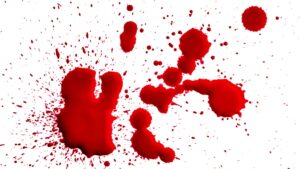Scopo’s health powerplays: Health goes up when markets go down

Pic: d3sign / Moment via Getty Images
Healthcare and life sciences expert Scott Power, who has been a senior analyst with Morgans Financial for 24 years, explains what the movers and shakers have been doing in health and gives his ASX powerplays.
Themes of the week
Towards the end of this week investors rotated back into defensive healthcare stocks on rising fears of a second wave of COVID-19 infections, and as everything else looks expensive.
On Wednesday night US markets fell by almost 3 per cent and the ASX responded with a similar dip.
“What we are seeing in Australia is for the last quarter until Wednesday, the ASX200 was up 17 per cent, but healthcare was only up 1.4 per cent after that rotation from defensive healthcare to more cyclical stocks such as banks in May,” Scott Power said.
“Then on Wednesday night the fear factor among investors overseas ratcheted up, the market came down, so we saw people flee back into the safe haven of healthcare.”
The last time investors flew to health stocks much of the rest of the market was in trouble and large numbers of life sciences companies were also looking shaky, such as any that relied on elective surgery or conducting blood tests, because patients were too scared to have their regular tests done.
But this time pathology stocks are looking much more positive.
Sonic Healthcare (ASX:SHL) says most of its divisions are back to pre-COVID-19 normal and it’s reinstating its profit guidance for this year, saying earnings will be similar to last year.
“Sonic, which is one of our preferred stocks, was able to say after that weakness from March and April the trajectory is now positive, and the market rewarded that,” Power said.
Sonic has had a lot of help from the government via the Jobkeeper subsidy and an increase in low margin, but high volume COVID-19 testing which was enough to keep profitability in line with last year.
“We’re hearing that across the other pathology providers as well, such as the other big ASX company Healius (ASX:HLS), and it’s a theme across several medical services that things are returning to normal levels,” Power said.
“IVF companies are telling us the same thing and we’ve been looking at GP visit numbers and these are also returning to normal.”
Looking further into the analyst crystal ball however points to some headwinds on the way for health and life sciences companies that sell to consumers, and those which sell to institutions.
“While hospital budgets will be under pressure and insurers will be looking hard at everything they’re covering, especially in the US which is a very lucrative market for health, companies that sell to hospitals likely have safer revenue streams than those selling directly to consumers,” Power said.
While the US jobless rate fell in May to 13.3 per cent, one study says up to 42 per cent of those may never come back, cutting a vast swathe of possible consumers for sleep apnea devices or respiratory monitoring apps.
Pharmacies on the other hand can sleep easy.
“They are more in the essential service line. EBOS (ASX:EBO) is one of the few companies to have maintained its profit guidance of continued growth through this crisis,” Power said.
“It just signed its seventh community pharmacy agreement and with the government topping up funding for the community service obligation — the one that gives wholesalers extra funding to ensure any Australian across the country can fill their script — means it’s in a good position.”
“Australian Pharmaceutical Industries (ASX:API) and Sigma (ASX:SIG), even though it lost the $1bn in sales Chemist Warehouse deal to EBOS, are in the same boat.”
What’s up and what’s down
Thanks to the mid-week bounce, there wasn’t much bad to say about the health sector this week.
Proteomics (ASX:PIQ) was up 21 per cent after last week’s news validating its PromarkerD predictive test for diabetic kidney disease.
CSL (ASX:CSL), meanwhile, bought its way into the Haemophilia B gene therapy space for (potentially) more than $US2bn in milestone and royalty payments.
CSL bought the exclusive global rights to AMT-061, a gene therapy program for the treatment of haemophilia B developed by US-based gene therapy company uniQure.
“When you can’t develop it, buy it,” Power said. “CSL is now in the haemophilia B gene therapy space. Haemophilia B is worth an estimated $US1.6bn and is where CSL derives about $US400m or 5 per cent of its total revenues.
“More than $US2bn, with $US450m upfront and royalties into the low 20 per cent range, was a hefty price to pay though.
“CSL is still one of our favourites which we hope to pick up around $270.”
Hot picks
The hot pick is less a stock this week and more a who’s who of confessionals.
Power says he expects a rising number of corporate “confessions” leading up to results season from July onwards, laying the groundwork for why they have, or haven’t, done as well as expected.
“One we think is in a good position is IVF provider Virtus Health (ASX:VRT). They’ve told the market things are returning to normal,” he said.
“Nanosonics (ASX:NAN) is another. But while it has a strong thematic over the next decade of infection control, and people are pricing in an expectation of profit growth from new products yet to hit the market, in the short term sales could be soft.
“They’ll be trying to get those products into hospitals, which as we said will have tight budgets, so in the short term they could run into some headwinds.”
The views, information, or opinions expressed in the interview in this article are solely those of the interviewee and do not represent the views of Stockhead.
Stockhead has not provided, endorsed or otherwise assumed responsibility for any financial product advice contained in this article.
Related Topics

UNLOCK INSIGHTS
Discover the untold stories of emerging ASX stocks.
Daily news and expert analysis, it's free to subscribe.
By proceeding, you confirm you understand that we handle personal information in accordance with our Privacy Policy.








